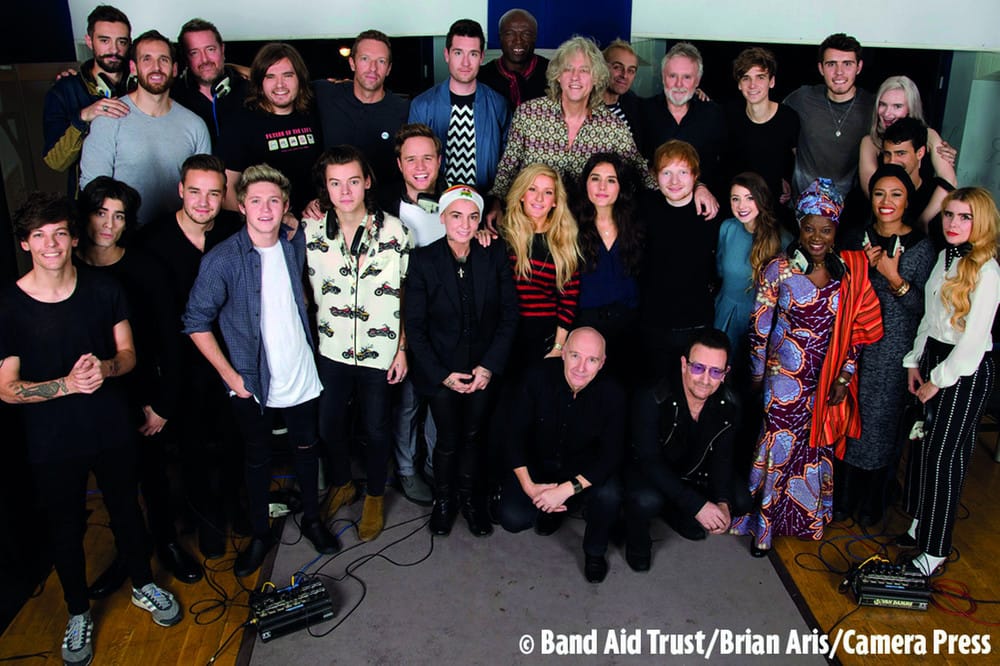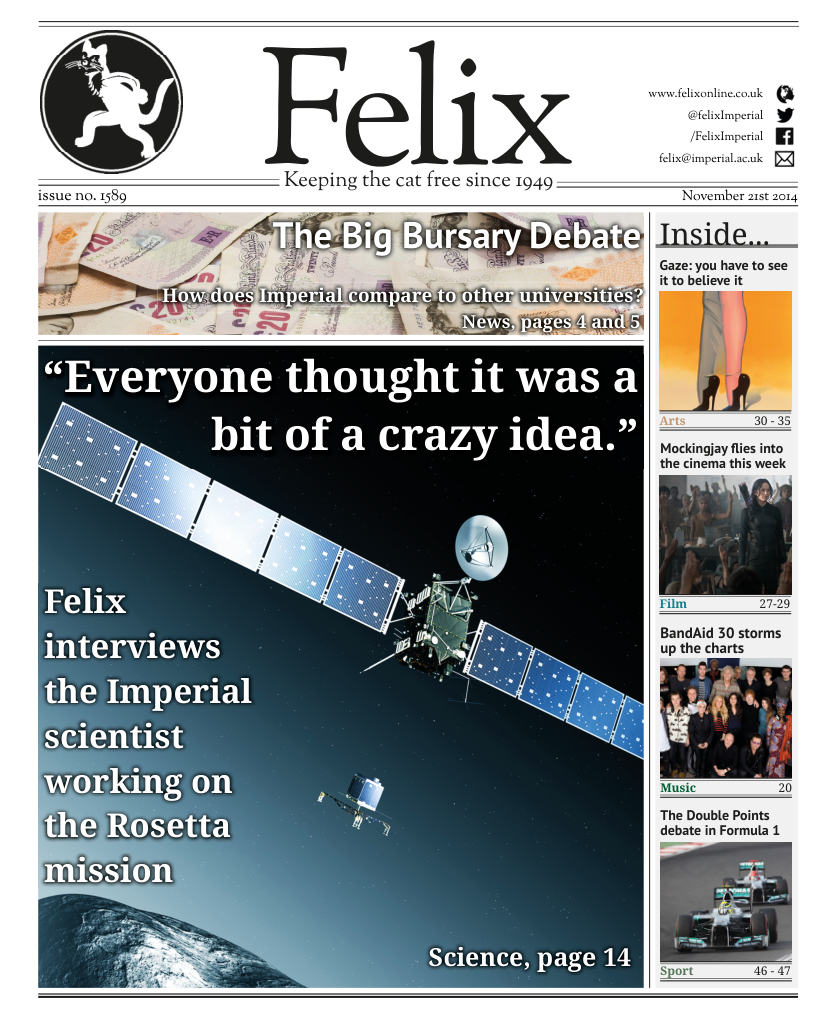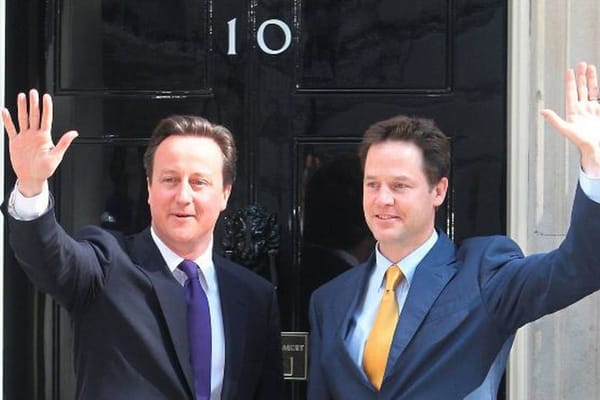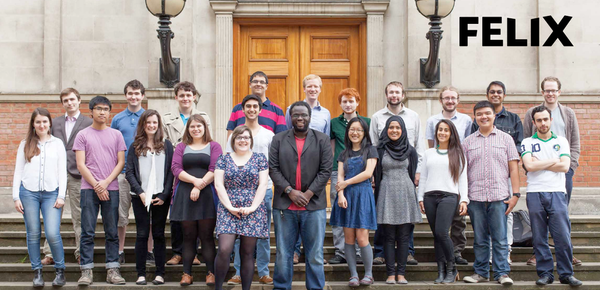Is Bob Geldof’s Band Aid out of touch?
The single might be topping the charts but does it perpetuate damaging stereotypes about Africa?

Aside from the fact that it makes me feel old (It can’t have been ten years since the last one, I remember that coming out when I was doing my GCSEs...), I have more problems with Band Aid and the song, ‘Do They Know It’s Christmas’ than I can possibly keep straight. Of course, there’s as big a difference between a dislike of the song and the concept as there is between the concept and the incarnation. Band Aid 30 represents a significant modernisation in the track, which aims to raise money to tackle the Ebola Crisis, and features significant changes to the lyrics compared to the original in 1984, which raised funds to help counter the Ethiopian famine.
‘Do They Know It’s Christmas’ has been remade several times over the past thirty years, with varying incarnations of Band Aid. Geldof’s original criterion for selection of celebrities in Band Aid was how famous they were. Logically, inclusion of as many of the most famous people as possible can only increase sales, and thus donations to charity. This can only be a good thing. But in the latest version, three faces appeared in the Band Aid group photo, presumably designed to tap into a whole new demographic. These people were Zoë Sugg, Alfie Deyes, and Joe Sugg, or as they may be more known to you: Zoella, PointlessBlog, and ThatcherJoe. These are British YouTube vloggers, and three of the most popular ones at that; Zoella alone has more than 6.5 million subscribers.
With the primary audience of YouTube videos being in the 13-17 age range, these names bring with them a huge group of dedicated fans to the cause. What is questionable about the decision to include them, however, is that they have no connection to the music industry, making them the first such celebrities to participate in Band Aid. With many young YouTubers of comparable popularity self-producing and releasing both original songs and covers, surely it would have been a better choice to feature voices which brought merit to the project?
They were able to contribute only to the chorus, where their voices are unheard, thus the only asset that they bring is promotion in terms of reaching an audience (that may already be saturated by the pop music/1D market) through publicity and the group photo, where they may or may not be spotted. Band Aid is a song, and through choosing instead an artist such as Carrie Fletcher, whose popularity on YouTube will make her voice distinctive to the huge number of people who know her, the song itself reaches out of this group of people, thus achieving its core purpose.
It seems that instead of considering the most appropriate youth celebrity for this demographic, Bob Geldof just decided that YouTubers seemed like a good idea, and picked Zoella from the top of the list of most subscribed. The other YouTubers featured are her boyfriend and brother, which seems more than a little coincidental – while they are also prominent YouTubers, I do not doubt that she helped orchestrate their selection.
While this is, at face value, a good publicity strategy – reaching out to the largest possible fan base – it sacrifices outreach from the music, where it was not necessary to do so, reducing its potential impact. A recognisable voice on the record will introduce fans of YouTube to the song in forums other than the YouTubers themselves talking about it, where they otherwise would not have noticed the song, if we to are assume that such a market has not already been penetrated. By failing to audibly include these internet stars, their contribution is only in publicity that they themselves generate by talking about it themselves. It shows Bob’s lack of understanding of the way that more and more artists are using YouTube as a platform to launch themselves; he is recognising its impact on a huge number of people, which would be foolish to ignore, but not its internal structure.
This is not the only example of Sir Geldof making seemingly rash and haphazard decisions with the Band Aid brand. Anyone familiar with the songs will know that the lyrics are not necessarily fully sensical. ‘There won’t be snow in Africa this Christmas time’ just plain ignores that fact that Africa is a actually a very large continent with a very diverse range of climates, including snow, and ‘Do they know it’s Christmas time at all?’ blatantly disregards the hundreds of millions of Christians in Africa who probably do actually know that it is Christmas time. This is just one example of how this song paints a picture of Africa as a continent totally unrelatable to the western world, entirely fraught with suffering and misery, and ignorant of ‘Western’ festivities such as Christmas.
The latest version of the song, addressing the Ebola Crisis, becomes:
Where a kiss of love can kill you
Where there’s death in every tear
And the Christmas bells that ring there
Are the clanging chimes of doom
Well tonight we’re reaching out and touching you
Bring peace and joy this Christmas to West Africa
_A song of hope where there’s no hope tonight (ooh) _
Why is comfort to be feared,
_Why is to touch to be scared _
_How can they know it’s Christmas time at all _
In much the same way as the whole of Africa was not desert-parched and starving during the Ethiopian famine, the whole of Africa is not cowering in fear and panicking about ebola. Africa is a huge continent, and while the seriousness of this crisis cannot be denied, it is actually only affecting a tiny number of countries, and generalising this even to the whole of West Africa is misleading, patronising, and perpetuates a negative view of Africa as continent of suffering, rather than a continent containing many of the fastest-growing global economies. While pity does sell, this isn’t necessarily fair on the people of Africa, or those who are being taken in and mislead into buying the single. After all, they should have a realistic idea of where their money is going, and who it’s going to affect.
I should finish by saying that, of course, this has been produced for charity. As Bob Geldof says, “It really doesn’t matter if you don’t like this song. What you have to do is buy this thing”. With around 200,000 copies selling in the first two days, this is the fastest selling single of 2014, and has already raised a phenomenal amount of money to go towards ending the ebola epidemic. Of course, he’s right, but while charitable donations in any form can only help solve this crisis, it isn’t unreasonable to expect celebrities who are regularly involved in charitable activities to raise the profile of such problems and Africa in a way which does not continue negative stereotypes. There are, of course, other ways to donate to the Ebola Crisis than by buying this single, and maybe you should consider giving to them instead; aiding without perpetuating the old-fashioned distorted view that Bob Geldof seems so intent on continuing.
Bob Geldof may be trying to appeal to everyone, but both when it comes to Africa and the music industry, his ideas are stuck in the past.










